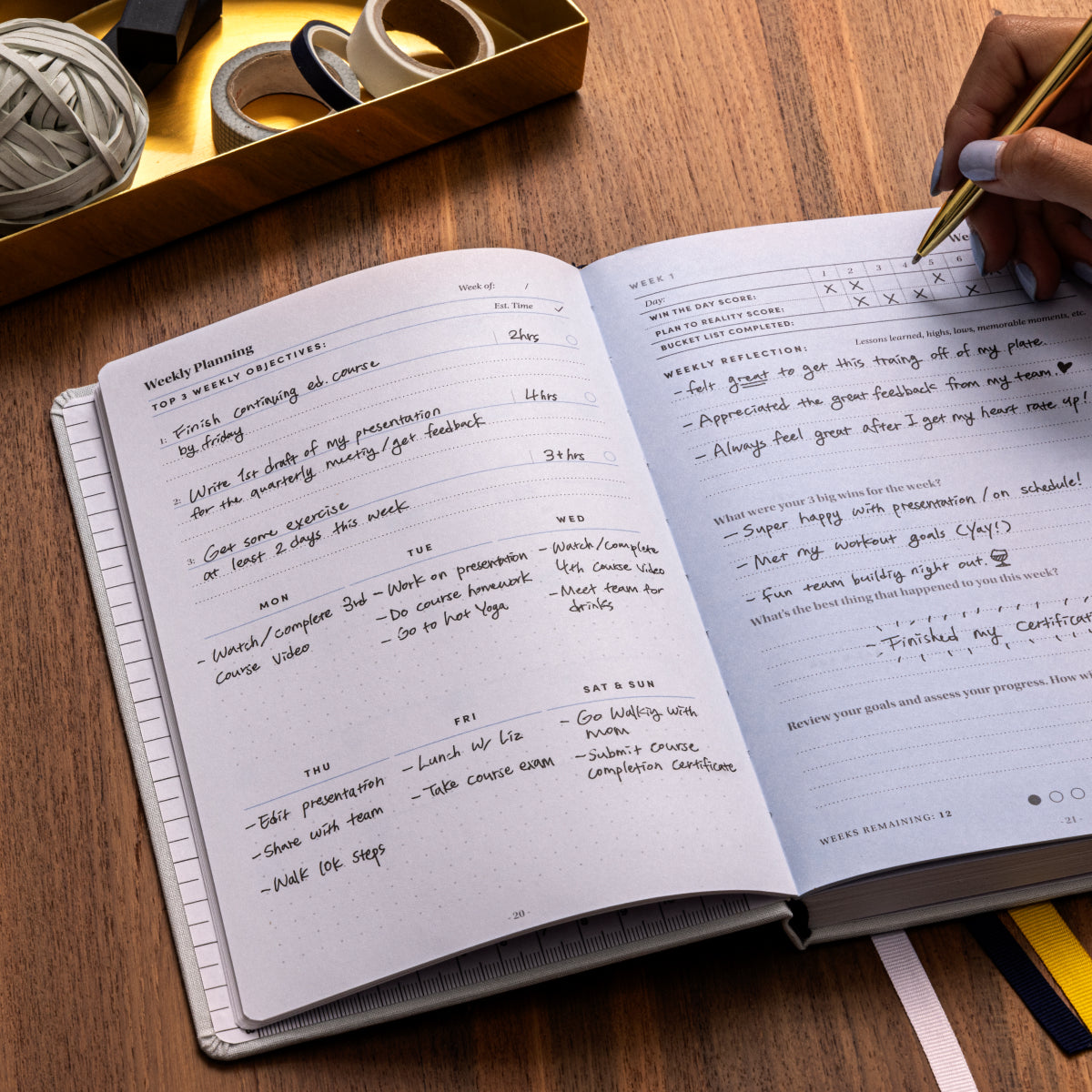Do you ever get overwhelmed into inaction?
Does your to-do list weigh heavy, drain your bandwidth, and prevent you from getting the clarity you need to make sound decisions and move forward?
If so, you’re not alone…
When you’re juggling too many balls and doing your best in a multitude of roles, your mind can get foggy. Mental clutter is a big problem and it’s costly… If we can’t take action, we can feel stuck and stagnant. When we lack clarity, we can’t focus enough to identify the choices that could change our lives for the better.
If that sounds familiar, then this article is for you - because I’m going to show you how to declutter your mind so you can get the mental clarity you need to make good decisions and feel in control of your life.
Let’s dive in…
1. Remove decision fatigue
Decisions take mental energy meaning the more decisions you have to make, the less bandwidth you have.
One way you can free up headspace is to cut the number of everyday decisions you have to make. There was a reason that Steve Jobs always used to wear the same black turtleneck, jeans & sneakers. Wearing the same thing every day meant he didn’t have to stand in front of his wardrobe deciding what to put on.
Don’t worry; you don’t have to purge your closet to remove decision fatigue - unless you want to! Instead, achieve a similar outcome with the help of:
• Implementing a morning routine that switches on your best - on autopilot
• Scheduling your day in advance [using a tool such as the Self Journal] so you don’t have to keep spending time figuring out what to do next
2. Create external brains
Another way to sharpen mental clarity is to stop trying to remember everything! The human brain isn’t at its best when it’s used as a memory bank. Instead, it thrives when it has the freedom to solve problems or get creative.
With that in mind, set the intention to get things out of your head and into systems or onto paper so you don’t have to waste your time and energy recalling key information.
For example:
• Create a robust note-taking system - so you don’t end up with piles of sticky notes, scribbles in various notebooks, and no idea where it all is.• Write tasks and errands onto a to-do list [the Weekly Action Pad is great for this]
• Set up calendar reminders so you don’t forget birthdays or other key dates
• Carry a notebook so you can jot down ideas or journal through thoughts when they show up
All these simple practices will free up valuable creative energy which you can use elsewhere.
3. Don’t multitask
It’s a myth that you get more done when doing multiple tasks at once. The human brain can’t actually multitask. When you’re multitasking, you’re actually switching rapidly from one task to another - because your brain can only focus on one thing at a time.
But that’s not all…
Multitasking prevents you from diving into deep focus and deeper work because your brain never has the time to sink beyond the surface-level and superficial. In fact, multitasking steals your time because it takes a while after each switch to get back into the zone again.
It may feel counterintuitive, but doing ONE thing at a time is a powerful way to get more done AND feel clearer in the process.
Where are you wasting bandwidth and cluttering your mind needlessly?
4. Systematize and automate
Are there parts of your life or your business that you do over and over again?
If so, take the time to figure out how you can shift repetitive tasks into a system so you don’t take up brain space and waste your energy repeating stuff unnecessarily
For example:
• Are there automation tools you can introduce so you don’t even have to do those repetitive tasks at all?• How about set alarms to remind you to drink water
• Or using a tracking watch to keep you accountable to your health habits
5. Prioritize
Your time is finite and limited. This means if you want to win the day, you’ll have more success if you focus on the tasks that move the needle the furthest. It’s the 80/20 rule where 80% of your results come from 20% of the tasks you complete.
Here’s a mindset shift that can help you cut the overwhelm you feel from a growing to-do list…
Simply remind yourself that NOT all tasks are created equally. Instead, figure out the key tasks that will move the needle the most - then focus all your energy to complete those first.
We recommend you set a maximum of THREE targets a day. Sure, you can include quick to-dos alongside this, but ask yourself... if you could do only three things - which ones would make the most impact.
When you’ve identified those key levers, schedule time to do them and set your focus.
Take action now!
Mental fog can really drag you down. It can drain your productivity, steal your motivation, and ensure you hit the pillow feeling anxious that things are piling up.
But with the right mindset and action steps, fogginess needn’t slow you down.
With the help of the techniques we’ve explored in this article, not only will your brain feel a lot less cluttered, but you’ll accomplish more on a day-to-day basis too.
What is the action you'll take immediately to declutter your mind?
Pull out your notebook and make your plan now - you’ll be glad you did!








Leave a comment
This site is protected by reCAPTCHA and the Google Privacy Policy and Terms of Service apply.